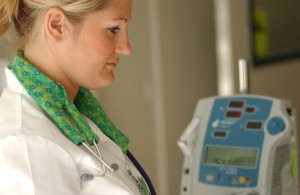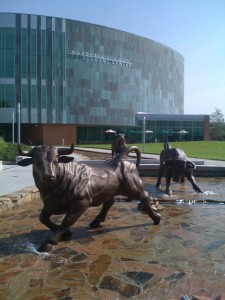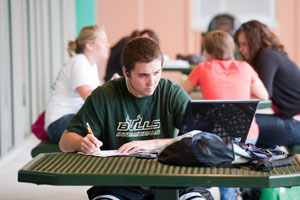 With the embrace of a real-time web, students and schools are becoming more social. By that, I mean that students are looking outside of the traditional realm of teaching and learning. They are also embracing other areas as resources. Erik Qualman, author of Socialnomics, states that Wikipedia not only has 15 million articles, but is as accurate is Encyclopedia Britannica. The point is, as we become more social, so does our information, so here are a few tips as to how studies can use social resources to maintain academic excellence.
With the embrace of a real-time web, students and schools are becoming more social. By that, I mean that students are looking outside of the traditional realm of teaching and learning. They are also embracing other areas as resources. Erik Qualman, author of Socialnomics, states that Wikipedia not only has 15 million articles, but is as accurate is Encyclopedia Britannica. The point is, as we become more social, so does our information, so here are a few tips as to how studies can use social resources to maintain academic excellence.
Research, Social Research.
We all use Google, right? I can guarantee that most of us Google our topics prior to writing. Then using social research can’t all be that bad. In fact, I promise that Wikipedia isn’t bad. There is tons of information that is more relevant than those outdated books that collect dust in libraries. The “bad” aspect of Wikipedia relies on the student and how they use it.
- Use it as a stepping-stone. Wikipedia isn’t the end-all-be-all. It is just another tool we can utilize to make things easier for ourselves.
- If you don’t have any prior knowledge on the topic or area use Wikipedia to read up on what your topic entails
- Don’t quote it- most teachers still frown upon Wikipedia, so don’t use it as a source, but rather, a tool
- Check facts- Wikipedia authors use resources too. Scroll to the bottom and check the resources they’ve used to compile their information. This part is a gold mine.
Blogs
Yes, people generate blogs and the content published. Yes, influential people in their respective industries have blogs too. These professionals, these influential opinion leaders aren’t just authors, they are also professionals. Authors don’t save up all their knowledge just to regurgitate it out into a book. Professionals do not just work in a cubicle and keep to themselves. They use blogs, books, white papers, reports and studies to continuously cultivate their craft, get feed back and brainstorm ideas. What says their information and opinion there is less reliable than a textbook. Here is an example of authors who blogs I read to stay up-to-date on industry news, trends and information.
Brian Solis- Principal of FutureWorks & Author of PR 2.0 & Putting the Public Back in Public Relations
David Armano- Digital Senior Vice President of Edleman, Chicago.
Mark Ragan – CEO of Ragan.com and creator of PR Daily
Mashable – The top source for digital and new media news
Sarah Evans- Consultant & Principal of Sevans Staragey
Presentations
Throughout your college career you will more than likely have to do presentations. Whether you use PowerPoint, tri-fold boards, or any other method it’s got to be done. Good thing there are a few, social, sources out there they help with the process. Prezi is a new presentation creation tool that helps you create your presentation in a fresh new way. SlideShare is a social tool that allows you access to user created and published slides. But how can these help?
- Create new, fresh presentation methods
- Generate ideas from other presentations
- Incorporate old slides with new presentations, giving attribution, of course
- Use slides that the professionals use
These are just a few ideas as maximize your use of digital and social consumption for academic purposes. There are more out there, take a look at this article from US News about 5 Social Media Tools for College Students. P.S. Yours truly is quoted!
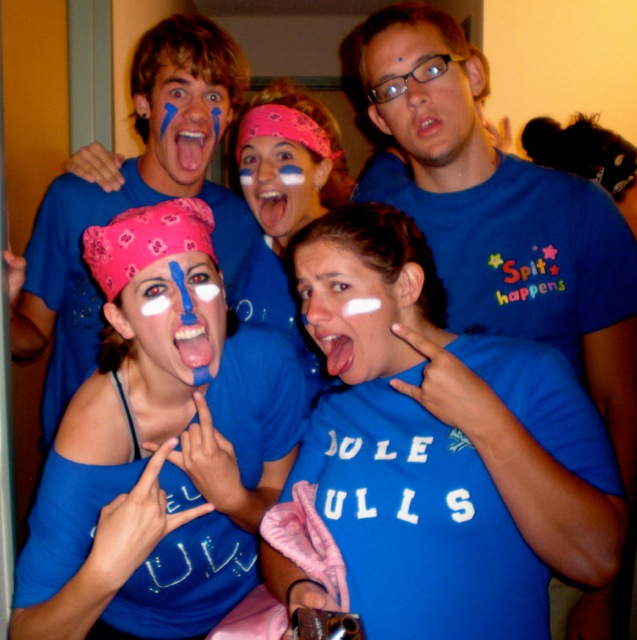
 Our first freshmen began taking classes recently, and many will end this Summer semester with a new understanding of the fundamental difference between high school classes and college classes….. personal responsibility. This year’s incoming class was highly successful in high school however each of you will enter your first class with very different ideas about studying. It’s not uncommon for freshmen to find themselves struggling to navigate the pace of college life as they try to integrate coursework with the robust student life we offer. I know when I was in high school my teachers were constantly reminding us about upcoming assignments, going over readings, creating study guides for tests, etc. In college, you receive a syllabus with your assignments, dates, and deadlines; the professor might not mention them again until it’s time to turn it in, or they may not mention something you were supposed to read until you see it on your test. Help! Here at USF we’ve tried to provide all of the resources you need to be successful, but you have to take full advantage. Use your planner (electronic or paper) to input all pertinent dates at the beginning of the semester. Don’t be afraid to ask for help, you’ll hear about study groups from time to time, join them, or if you need a study group grab some classmates and invite them to study with you. Our Tutoring Center offers assistance with a variety of classes here on campus; they also offer help with papers and seminars on study skills, time management, and test anxiety. These services are free to USF students and can be great tools in helping you navigate your first semesters here. The most important thing is not to procrastinate! If you wait until the semester ends to begin asking for assistance, you may be too late. Enjoy your Summer and Welcome to Bull’s Country Class of 2014!
Our first freshmen began taking classes recently, and many will end this Summer semester with a new understanding of the fundamental difference between high school classes and college classes….. personal responsibility. This year’s incoming class was highly successful in high school however each of you will enter your first class with very different ideas about studying. It’s not uncommon for freshmen to find themselves struggling to navigate the pace of college life as they try to integrate coursework with the robust student life we offer. I know when I was in high school my teachers were constantly reminding us about upcoming assignments, going over readings, creating study guides for tests, etc. In college, you receive a syllabus with your assignments, dates, and deadlines; the professor might not mention them again until it’s time to turn it in, or they may not mention something you were supposed to read until you see it on your test. Help! Here at USF we’ve tried to provide all of the resources you need to be successful, but you have to take full advantage. Use your planner (electronic or paper) to input all pertinent dates at the beginning of the semester. Don’t be afraid to ask for help, you’ll hear about study groups from time to time, join them, or if you need a study group grab some classmates and invite them to study with you. Our Tutoring Center offers assistance with a variety of classes here on campus; they also offer help with papers and seminars on study skills, time management, and test anxiety. These services are free to USF students and can be great tools in helping you navigate your first semesters here. The most important thing is not to procrastinate! If you wait until the semester ends to begin asking for assistance, you may be too late. Enjoy your Summer and Welcome to Bull’s Country Class of 2014!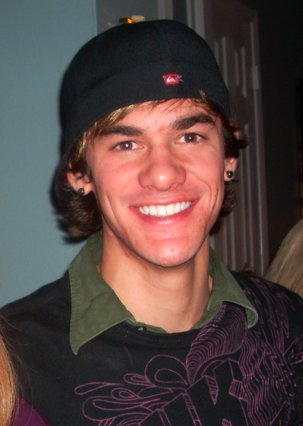 Welcome to Bulls Country. If you’re reading this, you might be attending first-year
Welcome to Bulls Country. If you’re reading this, you might be attending first-year  The coolest part of the gym is that they have a bouldering wall. Its basically a wall you climb up. Its really good exercise and really fun at the same time. I am really interested to try it. I want to see if I can do it. I am going to try that for sure.
The coolest part of the gym is that they have a bouldering wall. Its basically a wall you climb up. Its really good exercise and really fun at the same time. I am really interested to try it. I want to see if I can do it. I am going to try that for sure. This is the time of year when recent high school graduates begin preparing to launch their collegiate careers. I know this can be an exciting time, filled with anticipation, and probably some anxiety so I have a few tips that made my transition into college a little smoother.
This is the time of year when recent high school graduates begin preparing to launch their collegiate careers. I know this can be an exciting time, filled with anticipation, and probably some anxiety so I have a few tips that made my transition into college a little smoother.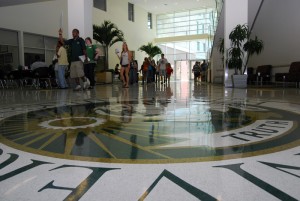 Yes! School is out! Now it’s time to sit back, relax, and… take summer classes?!
Yes! School is out! Now it’s time to sit back, relax, and… take summer classes?!